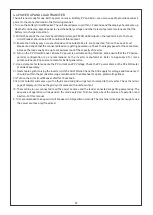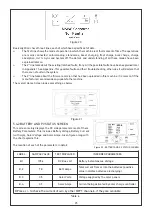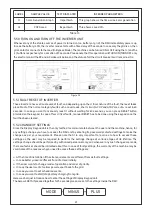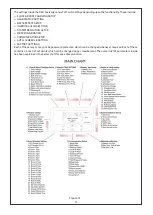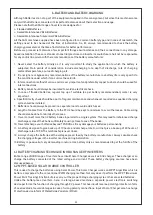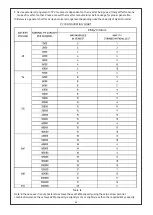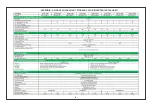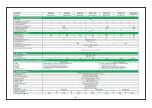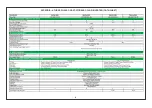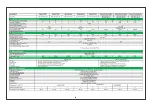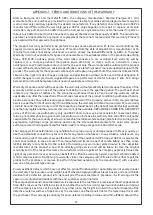
36
7. OPERATING MODES
These Smart Storage Solar Inverters have different OPERATING MODES each of which can be configured at site
using the front Display keypad unit provided on the System. These different operating modes give you flexibility
to prioritize various energy sources i.e. PV, Grid, Battery and DG sets in order you want to. Fundamentally there
are 3 operating modes, namely:
Note : The description in this section is for reference only. For a detailed explanation of the settings, either
contact our Customer Support or refer to our web manual on our website.
Standalone Operating Mode
HYBRID Operating Mode
HYBRID WITH GRID EXPORT Operating Mode
To interchange between any of these Modes, there is no single set point which changes the Operating Mode.
Instead, it's a combination of set points change using which any of the operating modes can be achieved. The
method of switching from one Operating Mode to other has been discussed below.
The main purpose of this section is to discuss how we can switch from one OPERATING MODE to another. But
first, it is very important to understand when to choose any OPERATING MODE out of the three options available.
Hence, we will first discuss the pros and cons of each of the three modes:
A.
STANDALONE MODE
1.
Order of Priority here is PV > Battery > Grid.
2.
Lesser consumption of grid power which is used only if PV and Battery are not able to meet the load
demand.
3.
Good for areas where grid is available all the time of the power cut is at a fixed time of the day. This is
because grid should be available at the time when PV and battery are no more available.
4.
Number of charge-discharge cycle of battery is high which may cause battery end-of-life to reach soon.
5.
In case of weak grid availability, this may not be a good option. Grid may be available when battery is
getting discharged. Once batteries are drained, grid may or may not be available. This may lead to
complete blackouts.
6.
Chances are high that battery may remain in shallow charge condition ultimately leading to shorter
battery life.
7.
In case of rainy season, grid shall charge battery and once charged, inverter shall take over and again
batteries shall get discharged. Hence, the overall losses involved due to Power Electronics are double.
To deliver the same units to the load, more grid units shall be consumed.
A.
HYBRID MODE
1. Order of Priority is PV > Grid > Battery.
2. Grid power will be given preference over battery in case PV power is not able to meet the load demand.
3. Grid output synchronizes with inverter output and hence, shares the load demand.
4. Battery remains in top of charge as long as grid is available and hence, has a longer life.
5. Lesser number of charge discharge cycles increases the battery life.
6. Lesser chances of power blackout because battery is always the last alternative.
7. Better system efficiency because PV charges the battery and grid caters to loads and hence inverter
conversion efficiencies are not involved in normal scenario.
8. In this mode, surge loads do not cause any stress on inverter or battery as the peaks of the surge is
shared by the grid supply.
9. In case of widely varying Grid, load end voltage varies just like the Grid voltage. This is because the
inverter voltage tracks the grid voltage for synchronization. This may not be good for some sensitive
appliances. A fix to this problem is by reducing the grid window range as per requirement.
10. Grid units consumed may be high in areas where there are no power cuts and loads are also partial. The
solution to this is the following discussed mode.
11. In case of partial loads and battery charged, there are chances that PV power is available but not getting
utilized. This will lead to poor PV generation as power export is not allowed.

